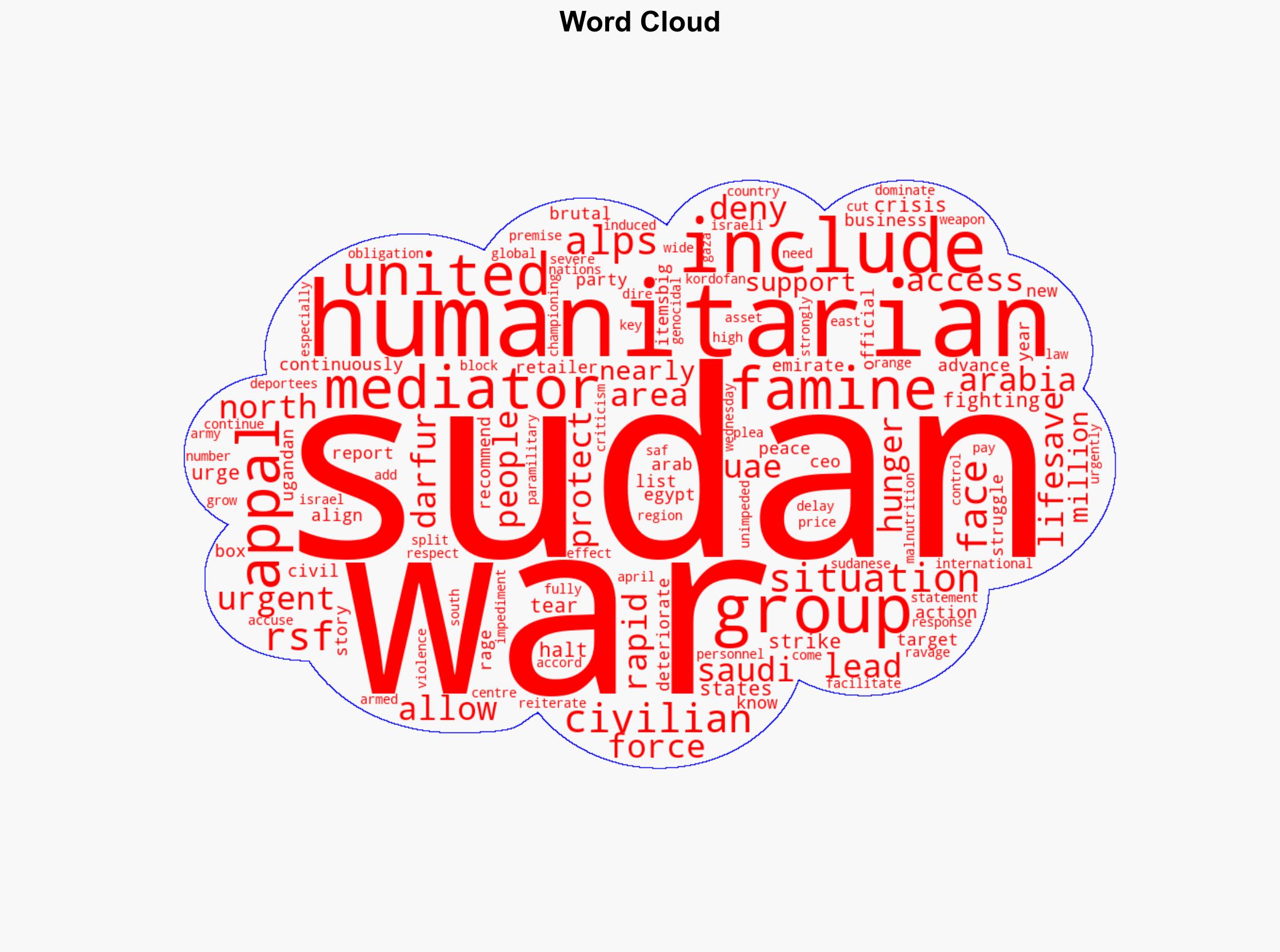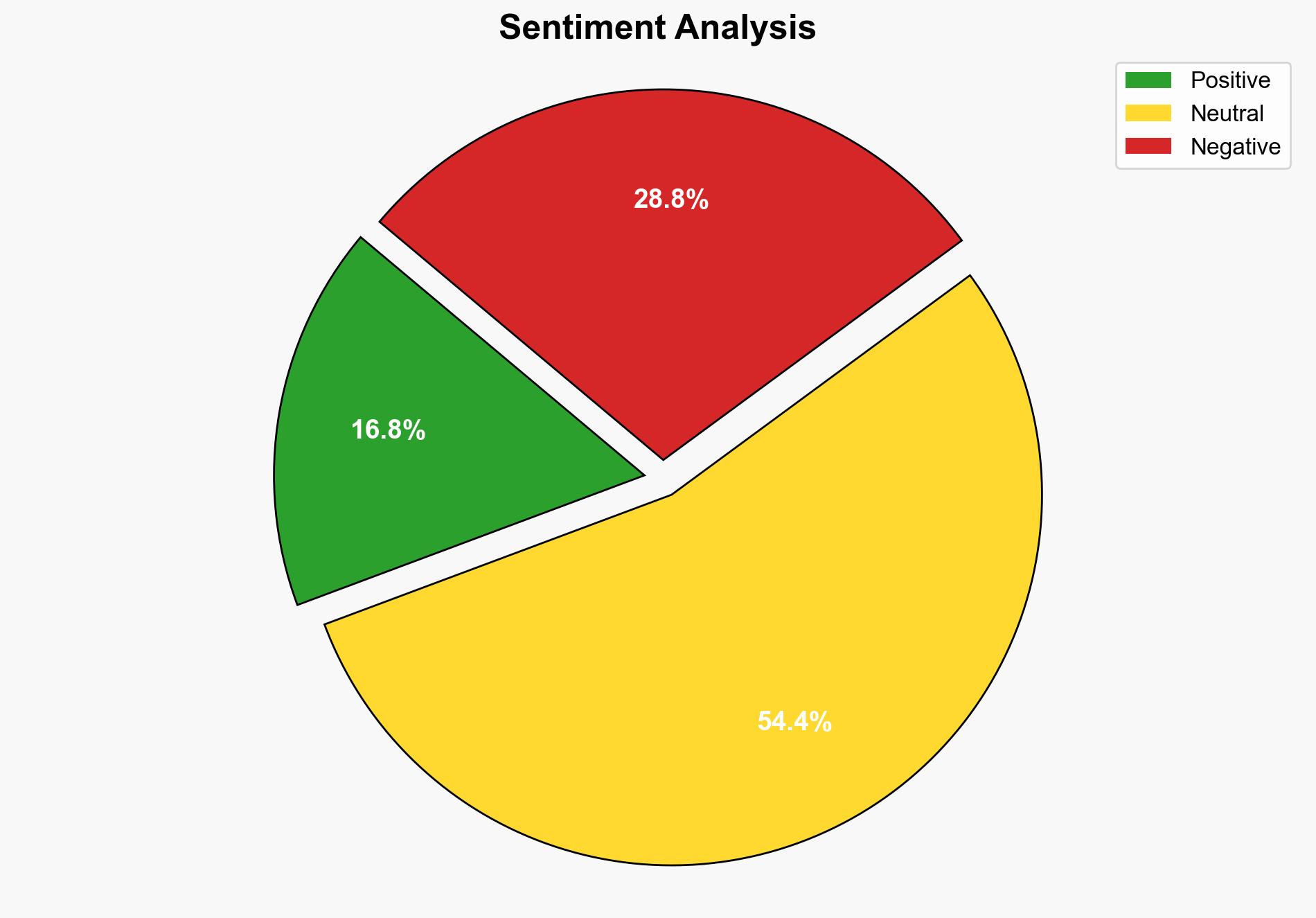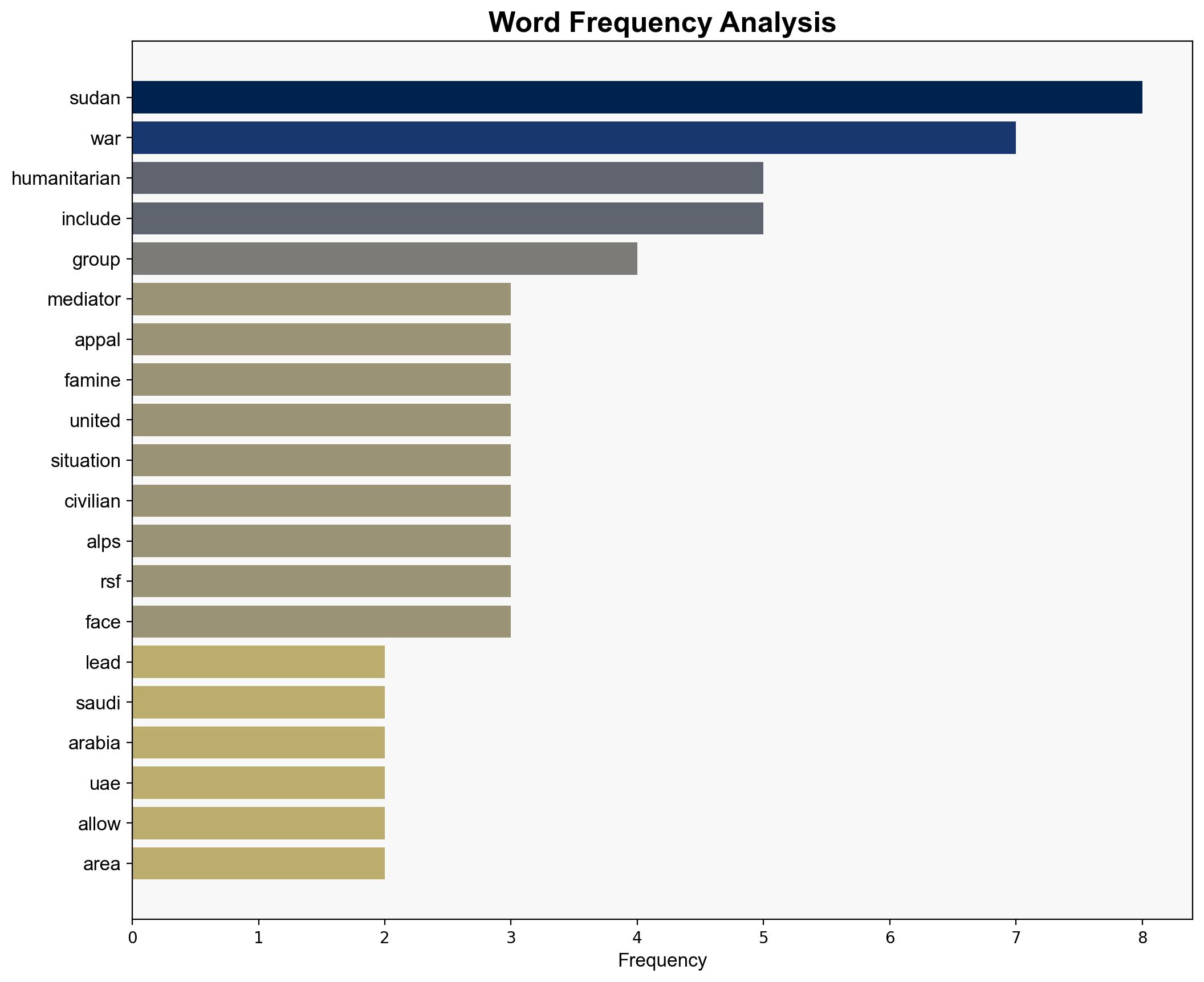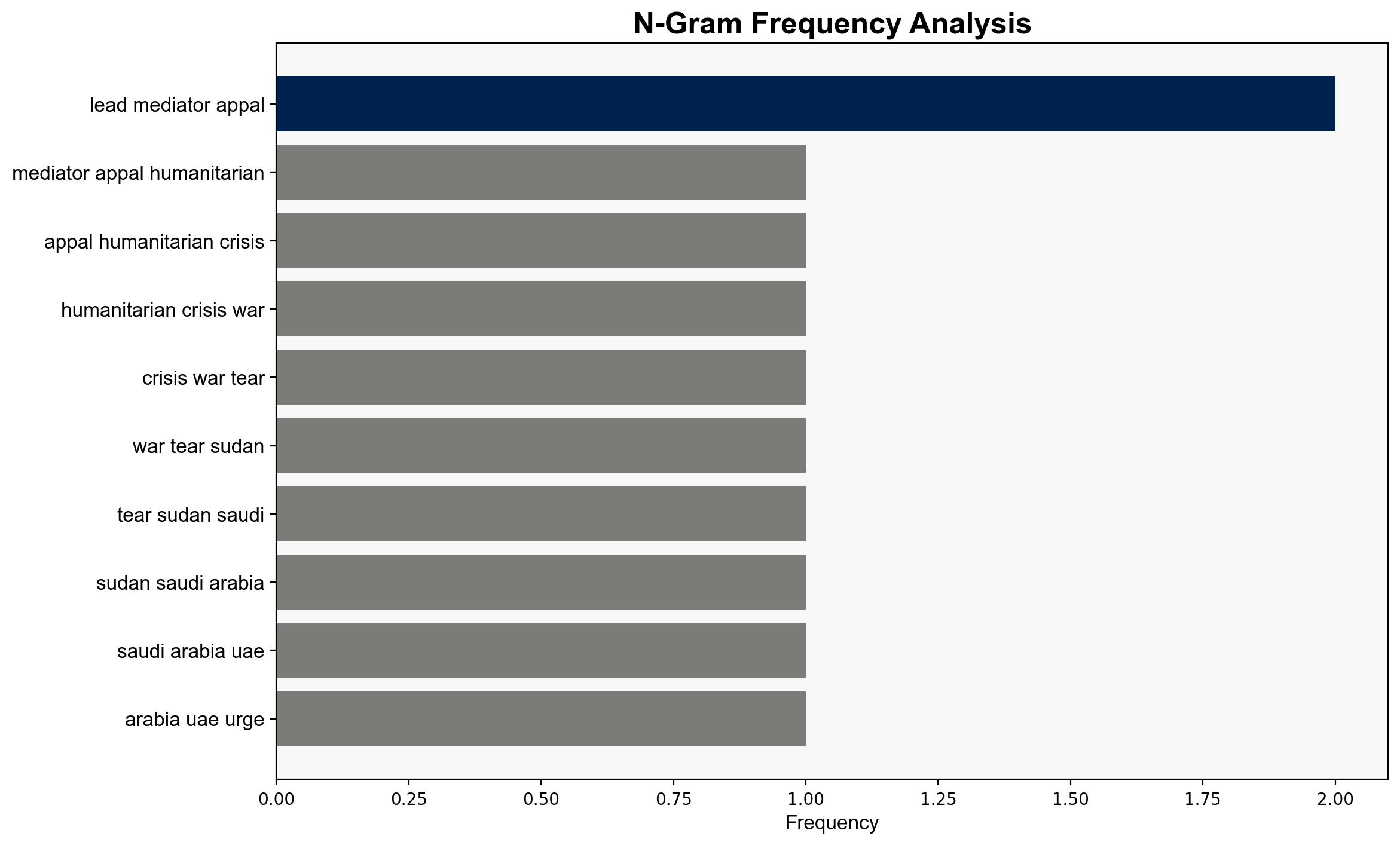US-led mediators appalled by humanitarian crisis in war-torn Sudan – Al Jazeera English
Published on: 2025-08-20
Intelligence Report: US-led mediators appalled by humanitarian crisis in war-torn Sudan – Al Jazeera English
1. BLUF (Bottom Line Up Front)
The humanitarian crisis in Sudan is exacerbated by ongoing conflict between the Sudanese Armed Forces (SAF) and the Rapid Support Forces (RSF). The most supported hypothesis is that external influences, particularly from regional powers, are prolonging the conflict. Confidence level: Moderate. Recommended action: Increase diplomatic pressure on regional actors to cease support for armed factions and enhance humanitarian access.
2. Competing Hypotheses
1. **Regional Influence Hypothesis**: External actors, notably the UAE and potentially others, are providing support to factions within Sudan, thereby prolonging the conflict and exacerbating the humanitarian crisis.
2. **Internal Dynamics Hypothesis**: The crisis is primarily driven by internal power struggles and resource competition within Sudan, with external influences playing a minimal role.
Using ACH 2.0, the Regional Influence Hypothesis is better supported by evidence such as accusations against the UAE for supporting the RSF with weapons. The Internal Dynamics Hypothesis lacks direct evidence of significant internal drivers beyond the ongoing conflict.
3. Key Assumptions and Red Flags
– **Assumptions**: The Regional Influence Hypothesis assumes that external support is significant enough to impact the conflict’s duration and intensity. The Internal Dynamics Hypothesis assumes that internal factors are the primary drivers of the conflict.
– **Red Flags**: Lack of direct evidence linking specific regional actors to ongoing support. Potential bias in reporting, as accusations may be politically motivated.
– **Blind Spots**: Limited information on the internal political dynamics within Sudan that may also contribute to the conflict.
4. Implications and Strategic Risks
– **Geopolitical Risks**: Continued conflict could destabilize neighboring regions, leading to broader regional insecurity.
– **Humanitarian Risks**: Prolonged conflict will exacerbate famine and malnutrition, increasing civilian casualties and displacement.
– **Economic Risks**: Ongoing instability may deter investment and economic recovery efforts in Sudan.
5. Recommendations and Outlook
- Engage in diplomatic efforts to pressure regional actors to cease support for armed factions in Sudan.
- Enhance international humanitarian aid and ensure unimpeded access to affected regions.
- Scenario Projections:
- Best: Successful diplomatic intervention leads to a ceasefire and improved humanitarian conditions.
- Worst: Escalation of conflict with increased regional involvement and humanitarian catastrophe.
- Most Likely: Continued low-intensity conflict with sporadic humanitarian access improvements.
6. Key Individuals and Entities
– UAE (accused of supporting RSF)
– Sudanese Armed Forces (SAF)
– Rapid Support Forces (RSF)
7. Thematic Tags
national security threats, regional focus, humanitarian crisis, geopolitical dynamics





